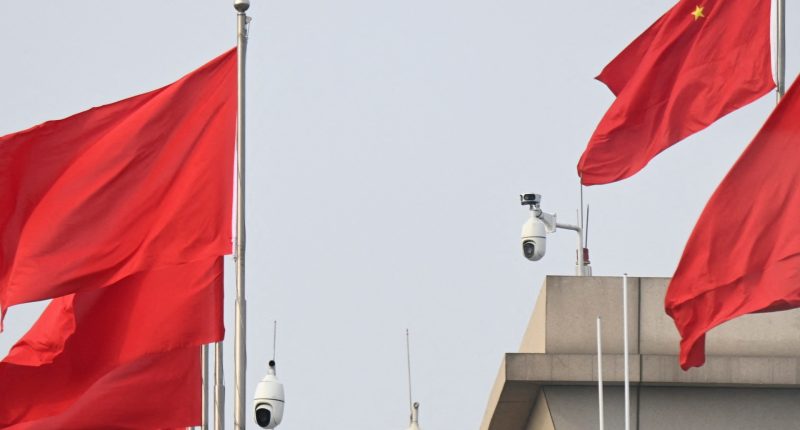China is exporting its model of digital authoritarianism abroad with the help of its far-reaching tech industry and massive infrastructure projects, offering a blueprint of “best practices” to neighbours including Cambodia, Malaysia and Vietnam, a human rights watchdog has warned.
In 2015, two years after kicking off its massive Belt and Road initiative, China launched its “Digital Silk Road” project to expand access to digital infrastructure such as submarine cables, satellites, 5G connectivity and more.
Article 19, a United Kingdom-based human rights group, argues that the project has been about more than just expanding access to WiFi or e-commerce.
The Digital Silk Road “has been just as much about promoting China’s tech industry and developing digital infrastructure as it has about reshaping standards and internet governance norms away from a free, open, and interoperable internet in favour of a fragmented digital ecosystem, built on censorship and surveillance, where China and other networked autocracies can prosper”, the watchdog said in a report released in April.
The 80-page report describes how the Chinese state is inextricably linked to its tech industry, a key player in the Digital Silk Road project, as private companies like Huawei, ZTE, and Alibaba serve as “proxies” for the Communist Party.
China has signed dozens of technical standard agreements with 49 countries participating in the Belt and Road, while other countries in the region including Cambodia, Indonesia, Malaysia, Myanmar, Nepal, Pakistan, and Thailand have agreed on further communiques with Beijing on digital infrastructure.
The Asia Pacific region is particularly important to Beijing, Article 19 said, as it holds a “strategic significance for China as it rolls out next-generation technologies and seeks global partners in normalising its authoritarian approach to internet governance”.
Some countries, like Cambodia, have modelled their digital governance on China, according to Article 2019. Since 2021, the Southeast Asian country has been working to build a “National Internet Gateway” in the style of China’s “Great Firewall” that limits access to many Western media outlets, Wikipedia, and social media sites like Facebook and X.
Others have also expressed concern about the project.
“The Cambodian government says this will bolster national security and help crack down on tax fraud. But the impact on Cambodian network connections will affect anyone who connects with those networks, which could have serious consequences for social and economic life, as well as potentially endanger free expression,” the Internet Society warned in December.
Nepal and Thailand are both reportedly interested in building a similar firewall, according to Article 19, and have played an active role in monitoring ethnic minority Tibetans and Uighurs living abroad on behalf of Beijing.
Under President Xi Jinping, the line between the Communist Party and the Chinese state has blurred considerably. The Party has also extended its influence deep into the private sector, with cells established in more than 90 percent of China’s top 500 companies, according to Article 19.
These companies, including tech giants, have been drafted into Beijing’s “united front” influence campaign to improve China’s image abroad and expand its global influence, Article 19 said, despite promises that they are independent of the state.
Concerns about data, privacy and potential influence campaigns have helped energise a push in the United States to ban TikTok, the wildly popular China-owned video app. Those behind the Protecting Americans from Foreign Adversary Controlled Applications Act argue the app could allow the Chinese government to access user data and influence Americans.
Security concerns have also affected the businesses of companies like Huawei and ZTE not only in the US but in other democracies including Australia, Canada, Japan, New Zealand and the UK. In the US, the two firms have been designated “national security threats” and banned from the construction of critical infrastructure.
Beyond China’s borders, the closer ties between the state and tech companies have also raised questions about how issues like data privacy or censorship will be handled abroad by Chinese tech companies, who operate undersea cables that grant them de facto control of huge swaths of global internet traffic.
Article 19 said it was “plausible that China would share such data with allied authoritarian governments or exploit it as part of its influence operations over others. Without greater transparency and oversight, it is impossible to rule out these concerns.”
Also Read More: World News | Entertainment News | Celebrity News








